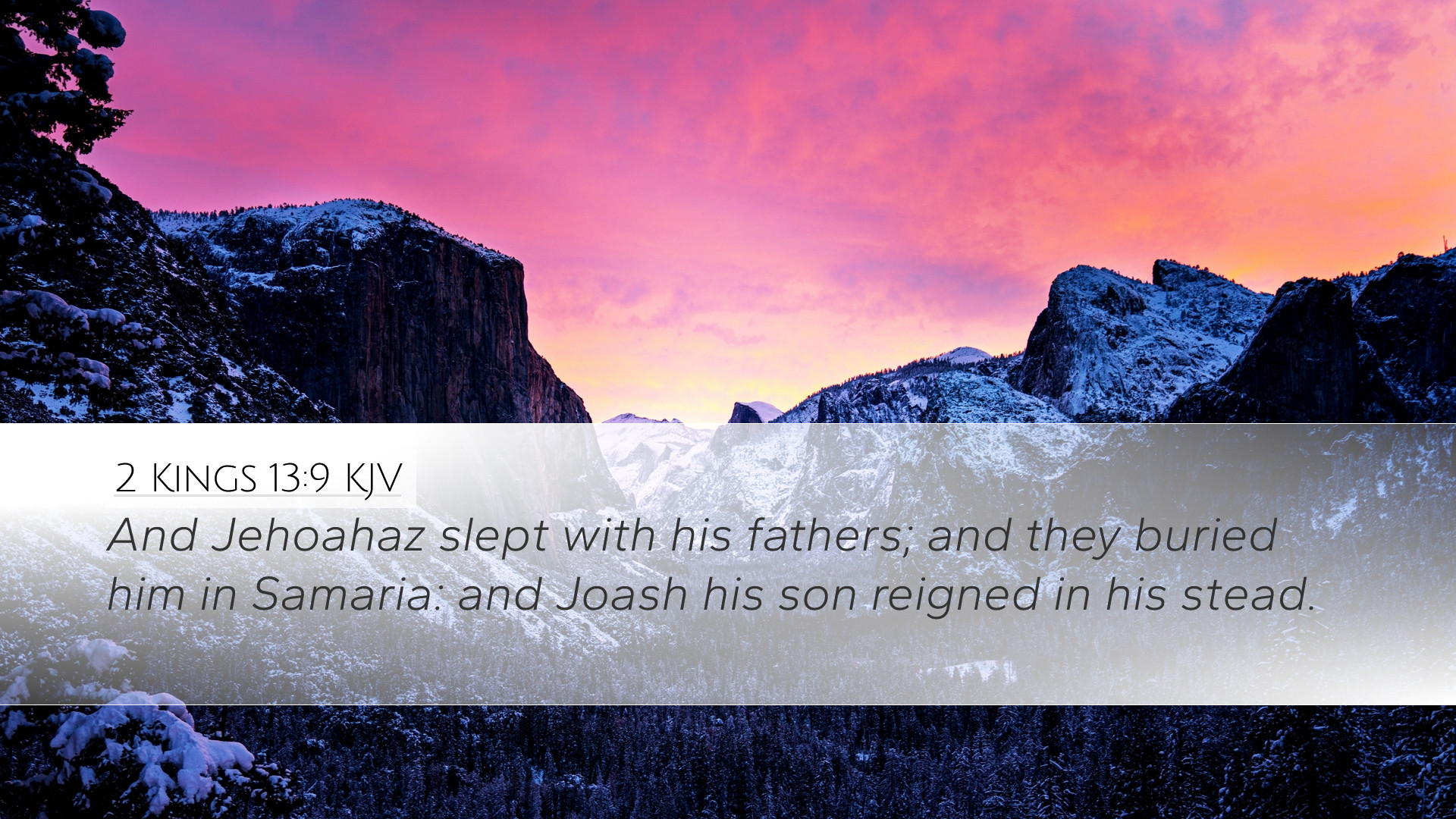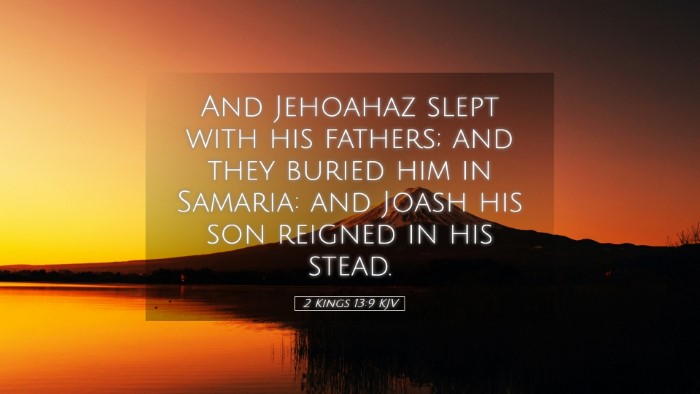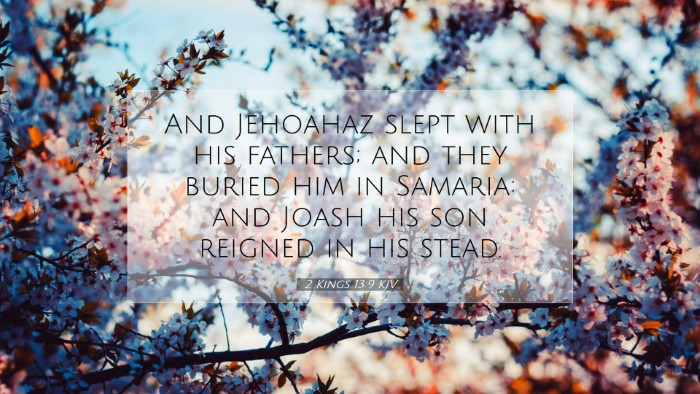Bible Commentary on 2 Kings 13:9
Verse Reference: 2 Kings 13:9 (NIV): “Elisha died and was buried. Now Moabite raiders used to enter the country every spring.”
Introduction
This passage marks a transition point in the narrative of the kings of Israel and is significant for understanding the historical context of Elisha’s ministry. The death of Elisha, a mighty prophet, signifies the end of an era characterized by prophetic leadership and miraculous interventions on behalf of Israel.
Historical Context
The mention of Moabite raiders highlights the ongoing conflicts faced by Israel during the time of Elisha’s successors. These incursions serve as a reminder of the geopolitical challenges that plagued Israel and the opportunities for prophetic ministry in an age of turmoil.
Elisha's Legacy
Elisha was a successor to Elijah and was endowed with a double portion of Elijah’s spirit. His ministry was marked by numerous miracles that demonstrated God's power and faithfulness. Matthew Henry notes that his death not only signifies the end of his personal ministry but also symbolizes a spiritual decline in Israel as the prophetic voice began to fade after his departure.
The Moabite Threat
The Moabites were a persistent threat to Israel, as indicated by their annual raids. According to Albert Barnes, these invasions demonstrate the continual strife and instability within the region that Israel faced, particularly as they drifted away from adhering to God’s commandments. The prophetic voice that once guided the nation is now absent, and the consequences of this spiritual neglect are evident in the warfare and suffering the Israelites endure.
Theological Implications
This verse imparts several important theological insights:
- The Importance of Prophetic Voices: Elisha’s death symbolizes a void in spiritual leadership. Pastors and theologians are reminded that the loss of prophetic ministry can lead to societal and spiritual decay.
- God’s Sovereignty in Suffering: The raiding of the Moabites is a stark reminder that, although God’s prophets were present to guide and protect, the consequences of sin can lead to devastating outcomes.
- The Role of Memory and Legacy: Adam Clarke emphasizes the importance of remembering the legacies of God’s servants. Elisha’s miracles and teachings were meant to guide the people even in his absence, stressing that godly influence can perpetuate even after a leader’s passing.
Practical Applications
As biblical leaders, students, and scholars reflect on this verse, several practical applications arise:
- Leadership Transition: The transition of power from one leader to another is often fraught with challenges. Elisha’s death serves as a prompt for church leaders to continually raise up new leaders and to prepare congregations for moments of transition.
- Spiritual Vigilance: The Moabite raids reflect the need for vigilance against external threats that seek to compromise faith and practice. Christians today are encouraged to remain steadfast in prayer and community, guarding against influences that could lead them away from God.
- The Endurance of Faith: Elisha’s ministry serves as a testament to the enduring promise of God’s presence, even in death. Believers are reminded of the hope that exists beyond life and the continuance of faith within the community of believers.
Conclusion
2 Kings 13:9 encapsulates a moment of loss for Israel, yet it also serves as a reflective point for ongoing lessons in leadership, vigilance, and faith. The deaths of prophetic figures present a challenge to both the faith community and individuals seeking to navigate times of uncertainty. In teaching and in practice, the insights drawn from Elisha’s life and the realities of Israel's struggles remain deeply relevant today.


